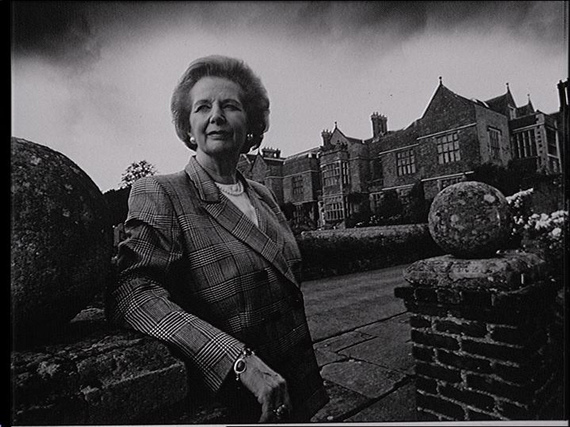 Image courtesy of BBC Radio 4
Image courtesy of BBC Radio 4
I have friends who happen to be Jewish, friends who happen to be Palestinian, friends who happen to be American, friends who happen to be Muslim, and friends who happen to be many other nationalities and religions.
Friends are people you know as individuals. They are not abstract ideological blurs onto which racists, nationalists, religious fanatics and the profoundly ignorant can project their own perverse interpretation of political reality.
To understand this you could hardly do better than watch CBS News anchor Bob Schieffer's country club invocation of former Israeli prime minister Golda Meir this week to suggest Palestinians are forcing Israel to kill their children.
Unlike Schieffer, whose interest in the conflict seems limited to citing stirring quotes in those moments when he's not focused on improving his golf swing, British TV news anchor Jon Snow presented a rather different take on Gaza. Snow's very personal account of his experiences at the Shifa Hospital did not focus on what Israeli Prime Minister Netanyahu contemptuously called "telegenically dead Palestinians," but rather on the injured and dying on two floors of the hospital dedicated to treating children. "In a very densely packed urban area, if you decide to throw missiles, shells, and the rest, then you will undoubtedly kill children. And that is what they [the Israeli government] are doing," Snow said. "We cannot let it go on."
These two divergent journalistic takes on the value of Palestinian life reflect the difference between abstract perceptions of Palestinians based on Schieffer's barely concealed racism and ignorance, and Snow's eyewitness reporting of events in Gaza where we see people as individual human beings trying to live their lives under Israeli occupation while suffering a barbaric onslaught by an army which likes to call itself the most moral in the world.
America's divergence from European and world opinion on the Israeli Palestinian question is nothing new and is reflected in international relations just as much as in the news media. In 1986, Margaret Thatcher lambasted Ronald Reagan's secretary of state, George Shultz, for the US administration's policy of giving uncritical support to every Israeli action. Peace would never come to the Middle East, said Thatcher, until justice was done for the Palestinians.
Thatcher's comment reminds us that in Gaza there is not a broad mass of abstract, blurry, frenzied Palestinians deliberately hurling their children into the line of fire generated by American supplied munitions. Instead, there are individual Palestinian families - Muslims and Christians - trying to live their lives just as we would wish to in Europe or the United States.
For those with busy lives who only pay attention to this conflict when the pavements and hospital floors of Gaza turn crimson, the plaintiff demand 'why can't everyone get along?' is an understandable one. The answer, as Margaret Thatcher recognised, is predominantly one about justice, but it is also a question of occupation and stolen land. Were the Israelis ever going to leave the West Bank, Mrs Thatcher asked George Schultz, or did they consider it part of their historic territory?
A Palestinian friend, Ismael Jabarine, who lives in Hamburg, but spends much of his time working in Jenin on the West Bank with the Freedom Theatre, explained the effects of the Israeli occupation of his homeland:
'How can we reconcile with our enemy who, with all possible means, tries to extinguish our existence? Killing and arresting Palestinians occur on a daily basis. Our homes are being demolished. Palestinian families are being forced to evacuate their homes for the radical settlers, who believe they have the right to do so. At any time the Israeli soldiers patrol through the city of Jenin to terrorise our people and to arrest our young inhabitants. People here are kept hostages in their homeland. They cannot even visit their holy city, Jerusalem, on Friday without permission from the Israeli security. And getting permission is for most of the people something that is impossible. People here in our city live only few kilometres away from the sea, but they have never been to the sea shore. Our people are surrounded by endless apartheid walls. Walls that separate families from each other. Walls that divide a village, a city into two unbridgeable parts. The Zionists have built streets of hundreds of kilometres on our agricultural lands. Streets that we are not allowed to use, streets made solely for the radical settlers. A settler can drive freely everywhere, enjoying the protection of the Israeli army. The Palestinians are very restricted in their movements in their occupied homeland. The Zionist occupiers have been destroying our culture, our heritage since the establishment of the Zionist state. For most of the Zionists in our country there is not such a thing as "The Palestinian Nation ". Then how can anyone even think of reconciliation under such circumstances?'
How many lost opportunities for peace, how many young Muslims radicalised in Britain and other countries will it take to change the feeble approach of Barack Obama, David Cameron and other Western leaders in allowing the onslaught against the Palestinians to continue, despite the increasingly negative impressions of Israel among their own populations?
How many dead children placed into shopping bags in Gaza or blown apart while playing football on a beach will it take to make Western politicians understand in 2014 what Margaret Thatcher was able to grasp so clearly? That to live within secure borders, Israel must accede to the legitimate aspirations of the Palestinian people, "because you cannot demand for yourself what you deny to other people."
David Miles is a Carnegie Scholar at the University of St Andrews researching American, British and German constitutionalism. He is a contributor at the Scotsman, the Daily Beast and Huffington Post.